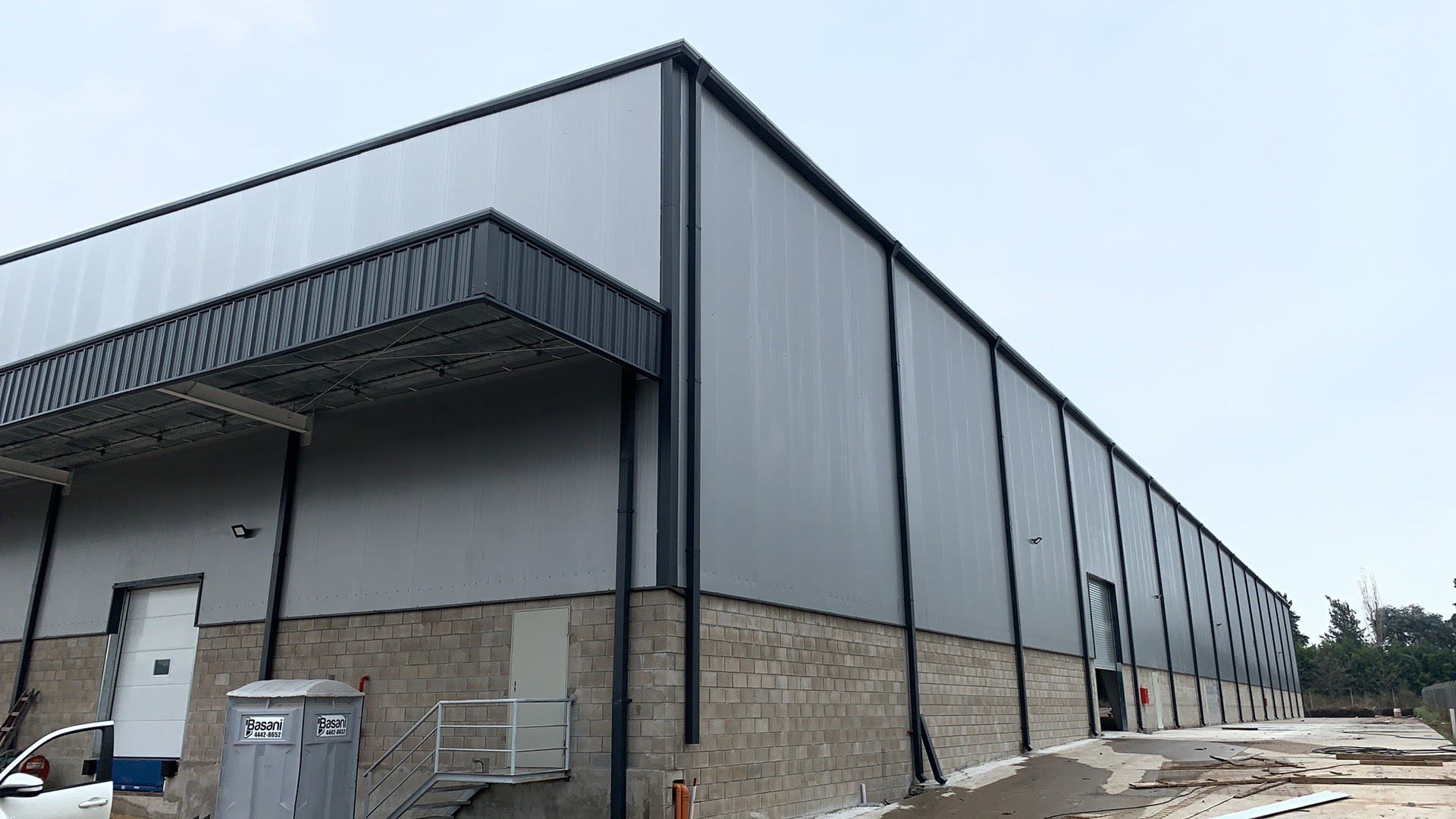The food & beverage industry is a thriving sector with unique challenges and specific requirements. Constructing industrial facilities for food production and storage demands precision, hygiene, and compliance with stringent regulations. If you're a professional in the construction of industrial buildings, it's essential to understand the solutions that cater to the specific needs of the food industry.
Let's go over several key aspects for your next project
1. Temperature-Controlled Environments
- Food items, whether it's fresh produce, frozen goods, or baked products, often require precise temperature control to maintain quality and safety. Insulated panels with advanced thermal insulation properties are vital in creating environments where temperature can be accurately regulated. These panels provide excellent thermal resistance, helping to keep the interior of the facility at the desired temperature, whether it's refrigeration, freezing, or ambient storage. By using the right insulated panels, professionals ensure that the food products remain fresh and safe throughout their journey within the facility.
2. Hygienic Surfaces
- Food safety is paramount in the food industry. Industrial spaces must feature surfaces that not only look clean but are genuinely hygienic. The choice of materials plays a pivotal role in this aspect. Stainless steel, for instance, is a popular option due to its resistance to corrosion, easy cleanability, and ability to withstand harsh cleaning agents. Properly designed surfaces that resist bacterial growth are essential to maintaining a safe and contamination-free environment.
Take a look at this captivating video showcasing a unique approach to construction, where the main building structure was positioned outside, resulting in a pristine and completely clean internal finishing.
3. Insulated Wall and Roof Systems
- For the construction of facilities in the food industry, selecting the right wall and roof systems is essential. Insulated panels offer an efficient solution, helping maintain temperature consistency and reduce energy costs. They come in various thicknesses and materials to cater to different needs, whether it's cold storage warehouses, production areas, or distribution centers. The use of insulated panels not only ensures thermal efficiency but also provides quick and easy installation, reducing construction time and costs.

4. Efficient Workflow Design
- Streamlined workflow is essential in food production. Professionals should design industrial spaces that facilitate efficient processes, reducing the risk of cross-contamination and optimizing production efficiency. A well-thought-out layout, including the placement of equipment, storage, and production areas, can lead to a smoother and more cost-effective operation. Considerations should also be made for easy access to cleaning and maintenance areas to ensure a high level of sanitation.
5. Energy Efficiency
- Reducing energy consumption is a growing concern in industrial building construction. Sustainable practices can lead to significant cost savings and reduce the environmental impact. Professionals should consider energy-efficient systems and materials, such as LED lighting, motion sensors, and energy-saving HVAC systems. Proper insulation and airtight construction also play a significant role in conserving energy, ultimately benefiting both the environment and the bottom line.
6. Ventilation and Air Quality
- Adequate ventilation and air quality control are necessary to maintain a healthy and safe environment for both workers and products. Properly designed ventilation systems can prevent the buildup of odors, contaminants, and airborne pathogens, enhancing the overall quality of the facility. Effective air filtration, HVAC systems, and exhaust solutions are crucial in achieving this goal.

In conclusion, professionals in the construction of industrial buildings for the food industry must consider a wide range of factors, from temperature control and hygiene to regulatory compliance and sustainability. By addressing these aspects, you can create industrial spaces that meet the stringent demands of the food industry, ensuring the safety of products and workers while maximizing operational efficiency and long-term success for your clients.


Comments